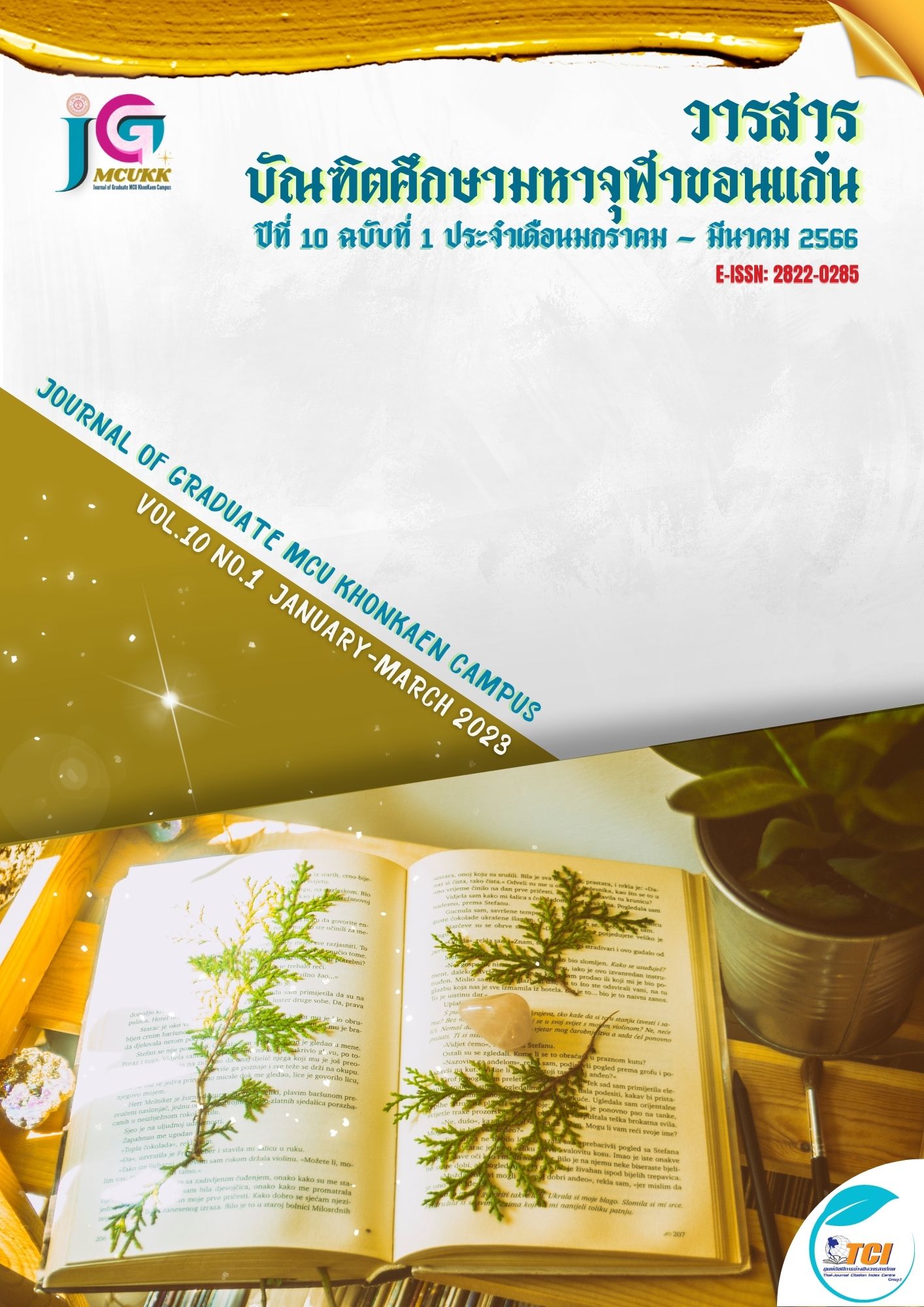The Relationship Between Emotional intelligence and Digital Leadership of school Administrators Under Chiang Mai Secondary Education Service Area Office
Main Article Content
Abstract
The objectives of this research were 1) to study the emotional intelligence level of school administrators under the Chiang Mai Secondary Educational Service Area Office, 2) to study the digital leadership of school administrators under the Chiang Mai Secondary Educational Service Area Office, and 3) to study the relationship between emotional intelligence and digital leadership of school administrators under the Chiang Mai Secondary Educational Service Area Office. The sample group of this research consisted of 87 school administrators under the Chiang Mai Secondary Educational Service Area Office.
The instrument used in this research was a questionnaire 6 levels. The Data analysis using frequency distribution, percentage, mean, standard deviation and simple correlation coefficient.
The results of the research were as follows:
1) the emotional intelligence of school administrators of school administrators under the Chiang Mai Secondary Educational Service Area Office over all and classified by aspect found that it was at true.
2) the digital leadership of school administrators of school administrators under the Chiang Mai Secondary Educational Service Area Office overall and classified by aspect was at quite true.
3) the relationship between emotional intelligence and digital leadership of school administrators under the Chiang Mai Secondary Educational Service Area Office was found that the correlation was quite high.
Article Details

This work is licensed under a Creative Commons Attribution-NonCommercial-NoDerivatives 4.0 International License.
References
กรมสุขภาพจิต กระทรวงสาธารณสุข. (2543). อีคิว : ความฉลาดทางอารมณ์. กรุงเทพฯ: กระทรวงสาธารณสุข.
เจษฎา ชวนะไพศาล. (2563). แนวทางการพัฒนาภาวะผู้นำเชิงเทคโนโลยีของผู้บริหารสถานศึกษากลุ่มสหวิทยาเขตทวารวดีสังกัดสำนักงานเขพื้นที่การศึกษามัธยมศึกษาสุพรรณบุรี. (วิทยานิพนธ์ศึกษาศาสตรมหาบัณฑิต). กรุงเทพฯ: มหาวิทยาลัยศิลปากร.
จุฑาทิพย์ ไชยชนะและคณะ. (2562). ความสัมพันธ์ระหว่างความฉลาดทางอารมณ์กับภาวะผู้นำดิจิทัลของผู้บริหารสถานศึกษา ในเขตอำเภอบางใหญ่ จังหวัดนนทบุรี. (วิทยานิพนธ์ศึกษาศาสตรมหาบัณฑิต). กรุงเทพฯ: มหาวิทยาลัยเกษตรศาสตร์ บางเขน.
ดิลกฤทธิ์ อภิวัฒนสิงหะ. (2549). ความสัมพันธ์ระหว่างความฉลาดทางอารมณ์กับความสำเร็จในการทำงานของผู้บริหารสถานศึกษาสำนักงานเขตพื้นที่การศึกษากำแพงเพชร เขต 1. สักทอง วารสารการวิจัย, 29(1), 124-142.
เยาวลักษณ์ จิตต์วโรดม. (2560). บทบาทและทักษะหลักของภาวะผู้นำในสังคมยุคดิจิทัล Role and Key Skills of Digital Society Leadership. วารสารธุรกิจปริทัศน์, 9(2), 81-91.
สุรีศรี วิศิษฎ์ศิลป์. (2556). ความสัมพันธ์ระหว่างความฉลาดทางอารมณ์กับภาวะผู้นำการเปลี่ยนแปลงของผู้บริหารสถานศึกษาในสังกัดสำนักงานเขตพื้นที่การศึกษาบุรีรัมย์ เขต 2. (วิทยานิพนธ์ครุศาสตรมหาบัณฑิต). บุรีรัมย์: มหาวิทยาลัยราชภัฏบุรีรัมย์.
อุไรวรรณ ชูมี. (2561). การศึกษาความฉลาดทางอารมณ์ของผู้บริหารสถานศึกษาตามการรับรู้ของครูผู้สอนสังกัดสำนักงานเขตพื้นที่การศึกษาประถมศึกษาสุราษฎร์ธานี เขต 1. (วิทยานิพนธ์ครุศาสตรมหาบัณฑิต). สุราษฎร์ธานี: มหาวิทยาลัยราชภัฏสุราษฎร์ธานี.
เอกรัตน์ เชื้อวังคํา และ วัลลภา อารีรัตน์. (2564). องค์ประกอบของภาวะผู้นําดิจิทัลของผู้บริหารสถานศึกษาสังกัดสํานักงานเขตพื้นที่การศึกษาประถมศึกษาอุดรธานีเขต 4. (การประชุมผลงานวิชาการระดับบัณฑิตศึกษาแห่งชาติครั้งที่ 22). ขอนแก่น: มหาวิทยาลัยขอนแก่น.
Goleman, D. (1998). Working with Emotional Intelligence. New York: Bantam Books.
Krejcie, R. V. & Morgan, D. W. (1970). Determining Sample Size for Research Activities. Educational and Psychological Measurement, 30(3), 607-610.

